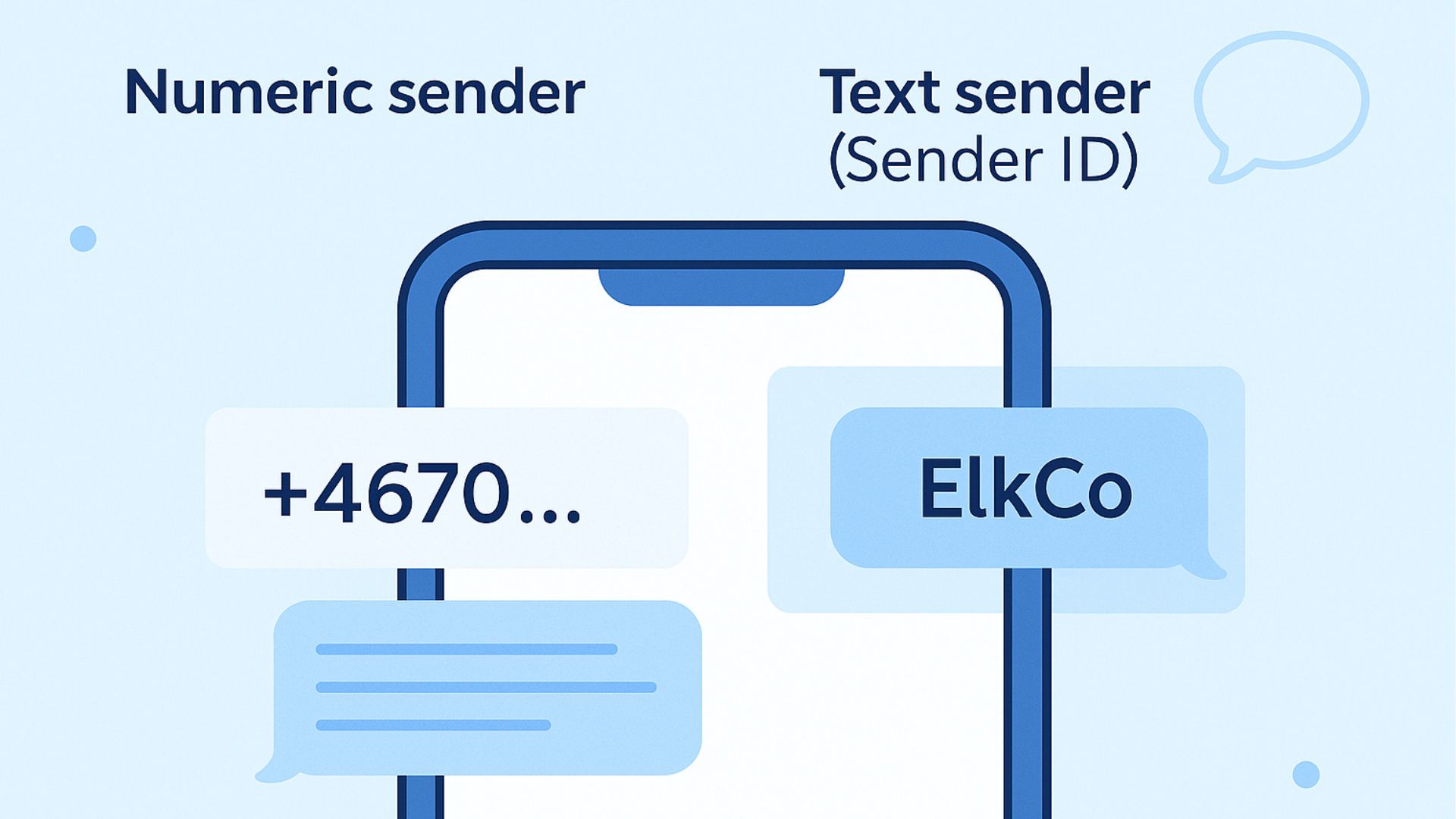The 46elks API lets you brand your outbound SMS with a text sender ID
(also called an “alphanumeric sender ID”) — a short name such as “ElkCo”
that is shown instead of a phone number when your users receive the SMS.
This article explains the common rules and limitations from 46elks,
operators, and handsets.

Basic format
- Only contain the characters A–Z, a–z, and 0–9
- Be between 3 and 11 characters long
- Not start with a number
Carrier and handset support for sender IDs in this format is widespread, with very few exceptions. Some countries (e.g., US & Canada) require pre-registration to comply with local regulations. Get in touch if you have questions about a specific destination.
Blank space
Most operators accept spaces in the sender ID (e.g., “The Elks”), but handset compatibility varies. Some iPhone models and iOS versions collapse spaces and display “TheElks”. This can change the tone of a message — for example, “YOUR AGE” vs “YOURAGE”.
Full stop (period)
Similar to spaces: operator support is generally good, but handset support can be inconsistent. Use with care if consistent display is important.
Other characters
When we submit your SMS to the operator, the sender ID is sent as a fixed-length
field encoded using GSM-7 or Latin-1. While the protocol allows characters from
the GSM 03.38
alphabet (such as å, ä, ö, or !), in practice many characters outside the A–Z/a–z/0–9
range are filtered by operators or not rendered correctly by handsets.
We recommend testing before launch, for each country and device type.
One-way vs two-way SMS
A text sender ID only works for one-way SMS — the recipient cannot reply or call back. If you need two-way communication , for example for customer support or when a reply is required, you should use a phone number instead.
| Feature | Text sender ID | Phone number |
|---|---|---|
| Replies | ❌ Not supported | ✅ Supported |
| Voice calls | ❌ Not supported | ✅ Supported |
Not sure what fits your use case? Contact support.
API support
By default, the 46elks API accepts text sender IDs that are 3–11 characters long, contain only A–Z/a–z/0–9, and do not start with a number.
We can relax these restrictions on your account upon request, but support is limited
if you choose to deviate from the recommended format.
Contact support
and we’ll help you assess the trade-offs and test.



